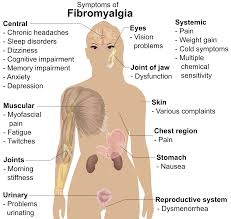healthcare

March 25,2025 • 4 min read
7 Effective Treatments for Fibromyalgia Pain

Fibromyalgia is a chronic condition that causes widespread musculoskeletal pain, fatigue, and tenderness. Individuals with this disorder often experience sleep disturbances, cognitive issues, and mood swings. Although fibromyalgia has no cure, several treatments can significantly reduce pain and improve quality of life. Here are seven effective treatments that can help manage fibromyalgia pain, including Pregabalin 300 mg, a widely prescribed medication for this condition.
1. Medication Therapy
Pharmaceutical treatments play a key role in reducing fibromyalgia symptoms. Doctors often prescribe pain relievers, muscle relaxants, and sleep aids. Among the most effective medications is Pregabalin 300 mg, which belongs to the anticonvulsant class. It works by calming overactive nerve signals, thus reducing pain sensitivity. Clinical studies have shown that Pregabalin 300 mg can significantly relieve fibromyalgia-related pain, improve sleep quality, and reduce fatigue.
Other commonly used medications include:
- Duloxetine and Milnacipran: These are serotonin-norepinephrine reuptake inhibitors (SNRIs) that help manage both pain and depression.
- Amitriptyline: This tricyclic antidepressant can help improve sleep and reduce pain sensitivity.
2. Physical Therapy
Physical therapy is an essential component of fibromyalgia treatment. It focuses on improving mobility, reducing stiffness, and strengthening muscles. A physical therapist designs customized exercise programs that include:
- Stretching and range-of-motion exercises to reduce stiffness.
- Low-impact aerobic exercises like swimming or walking to enhance cardiovascular health.
- Postural training to reduce strain on muscles and joints.
Regular physical therapy sessions can reduce pain and improve overall function, making daily activities more manageable.
3. Cognitive Behavioral Therapy (CBT)
CBT is a psychological treatment that addresses the emotional and cognitive factors contributing to fibromyalgia pain. It helps individuals:
- Identify and challenge negative thoughts related to pain.
- Develop effective coping strategies.
- Improve stress management and sleep patterns.
Studies have shown that CBT can lead to significant improvements in pain perception, fatigue, and emotional well-being.
4. Lifestyle Modifications
Making lifestyle changes can significantly reduce fibromyalgia symptoms. To minimize pain and fatigue:
- Maintain a regular sleep schedule: Sleep disturbances are common in fibromyalgia patients, so establishing a consistent bedtime routine can promote restful sleep.
- Follow a balanced diet: Eating nutrient-rich foods helps reduce inflammation and boosts energy levels.
- Stay physically active: Although pain may discourage movement, light exercise can improve muscle strength and reduce stiffness.
5. Alternative Therapies
Several alternative treatments have shown effectiveness in relieving fibromyalgia pain, including:
- Acupuncture: This ancient Chinese practice involves inserting thin needles into specific points on the body. It can reduce pain by stimulating natural pain-relieving chemicals.
- Massage therapy: Massaging muscles and soft tissues can promote relaxation and reduce muscle stiffness.
- Chiropractic care: Adjustments and spinal manipulations can enhance mobility and reduce muscle tension.
6. Stress Management Techniques
Stress can worsen fibromyalgia symptoms. Therefore, practicing relaxation techniques can help manage stress and reduce pain flare-ups. Effective methods include:
- Mindfulness meditation: Practicing mindfulness helps individuals become more aware of their pain and manage it with calmness.
- Deep breathing exercises: Controlled breathing promotes relaxation and reduces muscle tension.
- Yoga and tai chi: These mind-body practices combine gentle movements with breathing techniques to improve flexibility and reduce pain.
7. Sleep Quality Improvement
Poor sleep quality is a major trigger for fibromyalgia pain. Enhancing sleep hygiene can improve overall well-being. To promote better sleep:
- Avoid caffeine and electronics before bedtime.
- Create a comfortable sleep environment with a dark, cool, and quiet room.
- Use relaxation techniques before sleeping to calm the mind and body.
✅ Conclusion
Fibromyalgia is a complex condition that requires a multifaceted treatment approach. A combination of Pregabalin 300 mg, physical therapy, CBT, lifestyle changes, and stress management can effectively reduce pain and improve overall quality of life. If you or a loved one is struggling with fibromyalgia, consult a healthcare provider to discuss the most suitable treatment options.
amberswift521 Details
User Profile
- Full name
- amberswift521
- Email address
- amberswift521@gmail.com
- Join Date
- 2025-03-25
- State
- City
- Pincode
- Address
- Follow us on Facebook
- Follow us on Twitter
- Website Name
- Bio